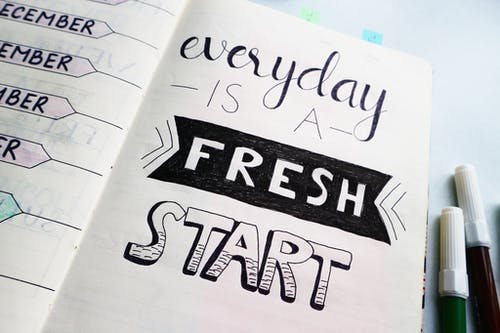9 practical tips to deal with procrastination
Procrastination does not only affect the working environment, it also affects personal life. It stops you from achieving set personal goals or visions.
The moment you say “later” or probably “tomorrow” you are on the verge of procrastinating. It is no secret that the greatest robber of time is procrastination.
Unfortunately, procrastination has become the way of life for so many people. Statements like “I will do it later” or “so other time” forms the majority of their work ethics.
As a robber, its major goal is to steal from you till there is nothing left to collect.
Do you remember how you got a query because you came to work late or perhaps the uncompleted tasks you have from last week’s job?
All these are the negative effects of procrastination, however, a lot of people still practice it.
Let’s discuss 9 useful habits you can cultivate to prevent procrastination.
1. Just do it
Like Nike says “just do it.” If you have a task you need to accomplish, the perfect thing to do is to start. Stop waiting for the right time to come or waiting for someone to coarse you.
Get over it already!
When you form a habit of doing things at the right time, you slowly give up procrastination.
Instead of sitting back to find motivation, just start doing the work without any motivation. As you start, motivation will find you during the process.
Stop making excuses or tolerating laziness, if you don’t feel like working just start doing something.
This is completely different from when you feel exhausted and need to rest.
It is mostly when you don’t feel like doing anything although you have a lot of unfinished tasks. Stand up or lie down but the most important thing is, don’t think, just do it.
2. Start with the simplest task
No two tasks are the same, Some tasks may be very simple while others may be quite difficult to handle.
If you feel like procrastinating, why don’t you begin with the simplest and less-tasking tasks?
For example, if you are a writer; starting a new post on a blank page can seem like a very hard task.
Instead of facing this task head-on, you can start with simpler tasks like;
- Researching about the topic
- Writing your headlines
- Write you subheadings
- A brief introduction
With all these little steps, your bigger task is achievable with little to no room for procrastination.
Always remember to start with the most simple tasks. Most times simple tasks can take a few minutes to complete, unlike the more complex tasks that may take hours.
When you complete 7 simple tasks in 1 hour as compared to 1 task in 5 hours. You feel like you are getting more done.
This fuels you enough motivation to take on the harder tasks.
3. Start with the most difficult tasks
Some people feel energetic when they complete their most difficult tasks. Starting with the smaller task, makes them feel like they aren’t really doing much.
For this set of people, it is very important that you pinpoint your major tasks and begin with them.
Instead of procrastinating or starting off with smaller tasks, take on the most complex tasks.
You do not need to follow the status quo, it is important that you stick with what works better for you.
4. Set a reward
This works really well with kids, when a reward awaits them they put in extra effort to get their work done.
Have you seen athletes competing for a medal, they do it with so much effort and energy? No one wants to lose therefore, they work extremely hard in order to win.
You can incorporate the rewarding process into your daily life in order to combat procrastination.
How do you do this?
Set daily or weekly rewards for yourself every week? It could be a treat at your favorite restaurant, a shopping spree, or a movie night on a weekday.
It doesn’t necessarily need to be something very expensive, it has to be something beneficial that can help you get the job done.
5. A good punishment
If rewards are effective, punishments are also very effective. Punishment is a form of reward although it doesn’t yield happiness like a reward.
To prevent slacking in a day’s job, you can cultivate the habit of setting punishments.
There are so many punishment techniques you can incorporate based on the things you love. They include;
- No shopping
- Less screen time
- No cinema
- No comfort food
- Read a boring history book
- Give money to a family member or friend
Quite a lot of punishments to pick from, ensure you make a beneficial decision.
6. Work with a team
Teamwork is great but it’s also very beneficial in curbing procrastination.
As a team player, you are answerable to your team, your leader, and your assigned task.
When you work with a team, the need to procrastinate greatly reduces. This is because people hate others to see them as lazy, unproductive, and replaceable.
If you find it extremely hard to work alone, join a team.
7. Work with a timer
You can be working on a particular task for hours but feel like you have done nothing.
Complex tasks can take up a lot of hours, multitasking can also consume so many hours.
To monitor your hours spent on each task set a timer to track how many hours you use for each task.
8. Take breaks
There is absolutely nothing wrong with taking regular breaks.
When you are tired, learn to rest. This will prevent you from producing low-quality work filled with errors.
Rest is a part of the job, it is an important step that you shouldn’t skip. When you create time to rest you will have no legitimate reason to procrastinate.
9. Have a plan
You eliminate stress when you plan ahead. If you have a task to accomplish for a week, make a plan during the weekend.
How do you plan to accomplish your tasks? What day will you wish for each assigned project?
Plans can also help you monitor your progress and the flow of your work.
Conclusion
Procrastination can lead to accumulation of work, incomplete tasks, and reduced productivity.
The negative effects of procrastination are numerous and further yield more negative effects.
Pick one step and cultivate the habit in order to eliminate the need to procrastinate.


